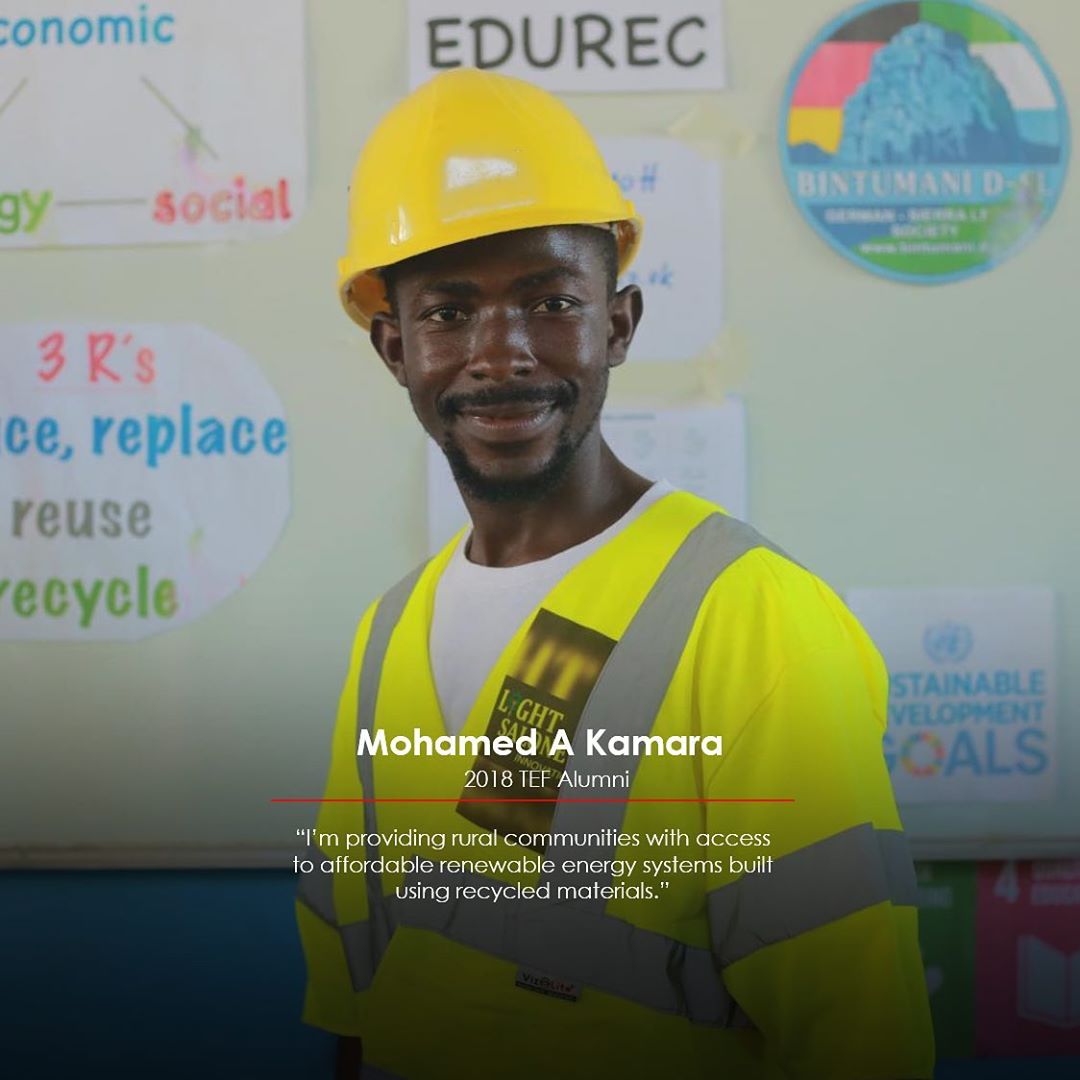
Tony Elumelu Funded Startup in Sierra Leone is Tackling Power Problems with Hybrid Solution
Tony Elumelu startup in Sierra Leone; Light Salone Innovation is providing rural communities with access to affordable renewable energy systems built using recycled materials.
Launched in September 2018 after its team met at a United Nations Development Programme (UNDP) youth innovation competition, Light Salone designs and fabricates small-scale renewable hybrid energy plants that combine solar and wind.
Its product, which it calls Sowind Technology, includes a plastic lantern, small scale hydro generator, solar book, and charging tele-centres, and is built using recycled materials to provide the cheapest and most sustainable electricity for rural communities.
“Over 85 per cent of citizens in Sierra Leone and more than 99 per cent of rural communities have no access to electricity. Hospitals, schools, youth centres and small businesses do not function effectively because of the inconsistency of electricity supply,” co-founder Mohamed Kamara and beneficiary of TEF; an African private-sector-led philanthropy focused on empowering African entrepreneurs told Disrupt Africa.
Light Salone looks to fix this, and, operating in small and isolated communities across the country, has already been a customer base of almost 3,000. It needs funding, however, to scale its impact.
“We hope to expand to other areas because the need for electricity is high. We hope to first have a huge market share in Sierra Leone before expanding to neighbouring countries in the next few years,” Kamara said.
Being based in Freetown, however, means investors are at a premium.
“Funding is a huge challenge as the entrepreneurship ecosystem in Sierra Leone is very new. We have lots of awards and recognition in the country, but our only source of funding has come from winning the UNDP innovation awards and the Tony Elumelu Foundation,” said Kamara.
We are searching for funding to help us scale up and expand across other regions.”
“Light Salone, which makes money from installing its systems, is also hindered by government regulations, which slow production.”
“Partnership is needed to help us collaborate with other industries that can help us scale up and reach out to the market. We need experienced business personalities to learn from and use their experience to expand our renewable energy options,” said Kamara.
Source: Disrupt Africa
